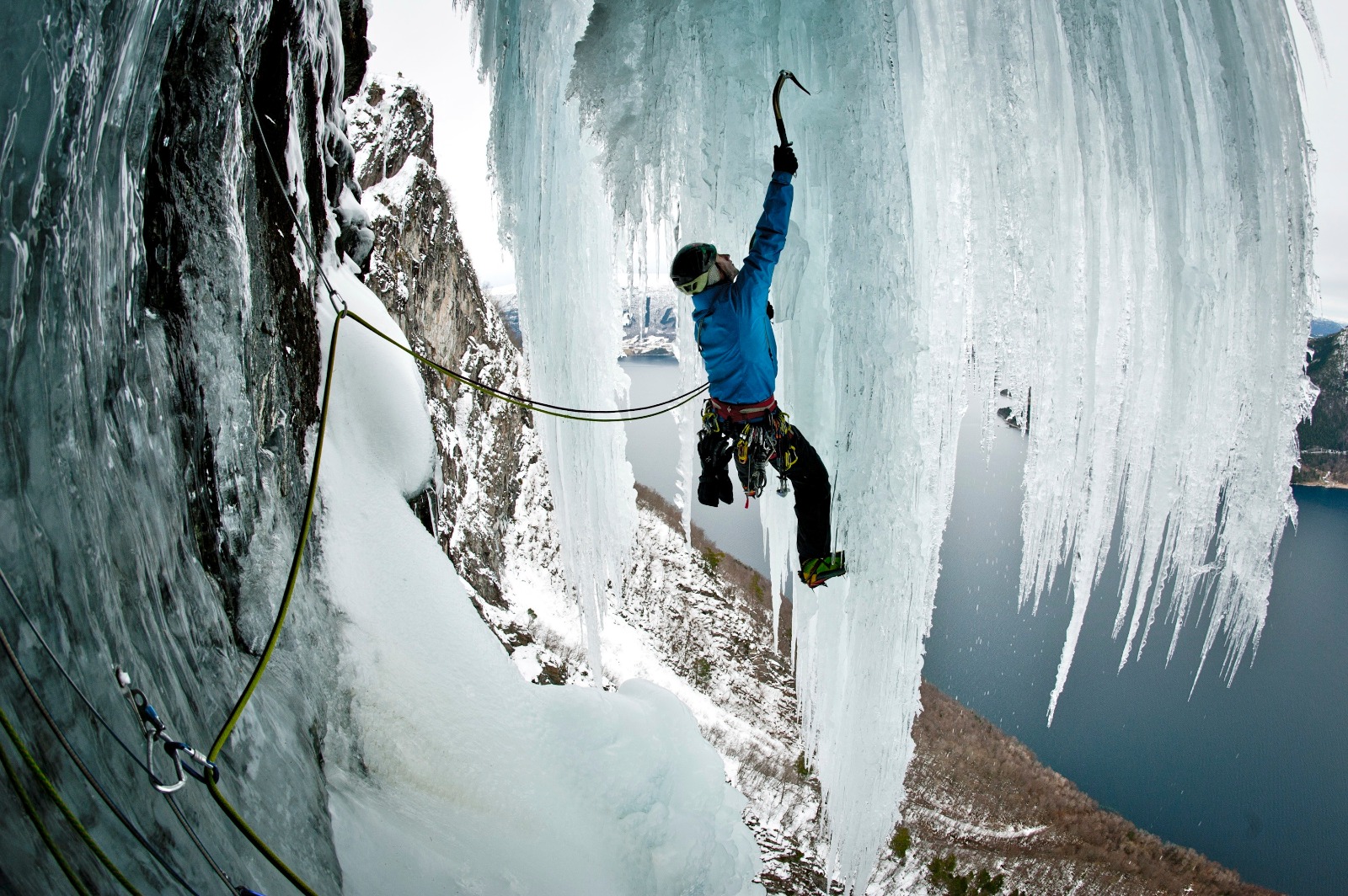High-altitude medicine and sport at the limit – fear Why rational thinking is so difficult in extreme situations. ‘The realisation that you are so tiny in this incessant rock face makes things a lot easier,’ says professional climber Rudolf Hauser from Salzburg. At the 40th Annual Congress of the GOTS at the Danube University Krems, the athlete, filmmaker and speaker talks about how the psyche reacts under stress on the mountain, what it does to our physical abilities and why rational thinking is so difficult in extreme situations.
Jena/Germany, March 18, 2025 If you observe how fearless babies and children actually are until they encounter and understand their parents‘ facial expressions, you can get an idea of what mental freedom means. Nobody needs to be clueless when climbing a mountain. However: ‘Despite all our athleticism, at some point our body reaches its limit up there. For the most part, the head then takes over,’ says Hauser.
Many very young climbers are bursting with strength and stamina, sometimes have a feeling of immortality and dare to do things that are far beyond their capabilities. Often there is also a quantum of luck involved. Hauser’s mentor coined the phrase: ‘When the time comes that you have to be afraid of your own courage, the preparation is lacking.’
Having grown a little older, with responsibilities in life, perhaps also with a family, many extreme athletes become more rational, plan better and act more consciously. It’s not for nothing that all the big-name mountaineers who are still alive are rational, clever types. They know when to turn back, says Hauser.
Extreme climbing requires hard training and perfect preparation. You work your way up to the very free, short moments of pleasure, the highest climbing performance on the mountain, step by step.
The credo here, according to Hauser, is: Work ethics eliminate fear. In other words, the work you put into something eliminates your fears. Hauser: ‘It’s like giving a lecture in front of hundreds of people. If you haven’t prepared it properly, you won’t sleep well beforehand because you know it won’t work. If everything is well prepared, I can reach completely different physical and mental limits.’
Mental training is still largely left to the individual athlete. Hauser: ‘There is still a lot of untapped potential here – even in climbing schools and clubs.’ Because physically, many athletes are equally good and highly trained. However, some have a mental superiority.
‘It’s not the strongest who are the best in this sport, but the most balanced,’ says the climber. On the mountain, thoughts often turn to finality and you always have to maintain respect for the mountain.
In other words, you must have done your homework. Am I well prepared? Where do I need to be fast, in which passage can I perhaps rest a little, where might rocks fall from?
From tour planning to the weather, from your physical condition to your mental state – the checklist is long. And then there’s the condition of the day. An extreme climber has to wake up and realise that today is the right day. I’ve done it a thousand times, I’m fluid. I haven’t lost any strength because of problems with my mental state. At the end of the day, the decision has consequences.
‘There is always a residual risk,’ says Hauser, ’then you have to ask yourself, what is it worth to me? Our brain is like a circuit breaker – it switches you off very quickly. If you get anxious the night before or feel inadequately prepared, you’ll have to cancel in the morning.’
Further information:
(https://gots.org/mediacenter/hoehenmedizin/)
ImageSource
Alpine Management Art Media GmbH, Die Angst darf nicht mitklettern


